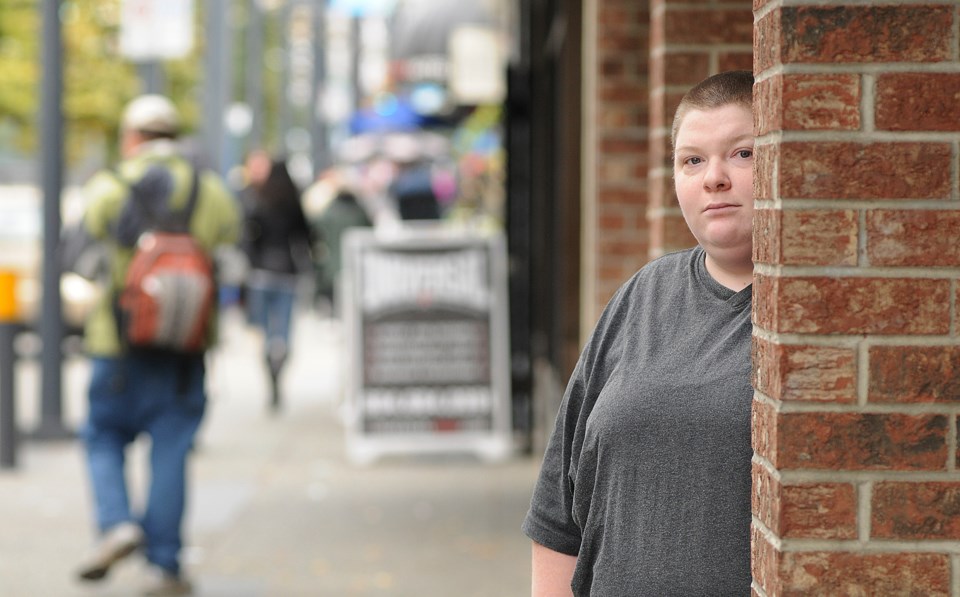Kicked out of his family home at 17 for being transgendered, Eireann Day struggled to find a stable place to live and dropped out of high school.
He spent time homeless and battling schizophrenia on the streets of Vancouver. All he wanted was a place to stay where he would be accepted but found that hard to come by.
“For a trans guy like myself if I were to access a shelter [… ]I would be forced into a woman’s room and I would be really uncomfortable and they face a lot of violence and bullying in regular shelters,” said Day.
According to Aaron Munro, manager of community development at RainCity Housing and Support Society, Day’s experience is not uncommon. “Studies in the U.S. and Canada have found that LGBTQ2S+ youth make up 30 to 50 percent of homeless youth in major urban centres, that is significant when research also tells us that people who identify as LGBTQ2S+ only represent 10 percent of the general population,” Munro told the Courier by email.
Both Munro and Day are speakers at Invisible Night: An evening of art, film and dialogue about youth homelessness Oct. 17. The event is part of Homelessness Action Week and a joint venture by the social justice film-screening group Reel Causes and the City of Vancouver. Proceeds will support RainCity’s two-year pilot project to provide housing, support and employment for LGBT youth between 18 and 25 years old.
Now 23 years old, Day turned his life around when he moved into his own apartment, which he got as part of a mental health research project in 2011. He is now finishing school and his schizophrenia has stabilized because he has a safe home where he can rest and take his medication on a schedule, he said.
Judy Graves, the longtime City of Vancouver homeless advocate who recently retired, will also be on the Invisible Night panel. She recalls a time when youth homelessness wasn’t a big issue in this city.
“In 1967 it was very easy to find housing if you were young because for a quarter of minimum wage you could rent a housekeeping room in the West End or Kitsilano or Commercial Drive area,” she said.
She blames the cost of land and zoning restrictions that favour single-family homes for locking youth out of the rental housing market.
Prior to the panel there will be an exhibit of art by both homeless youth and established artists followed by the screening of the film Sugar, which is based on filmmaker Rotimi Rainwater’s own experience of homelessness. For Invisible Night information see reelcauses.org.



